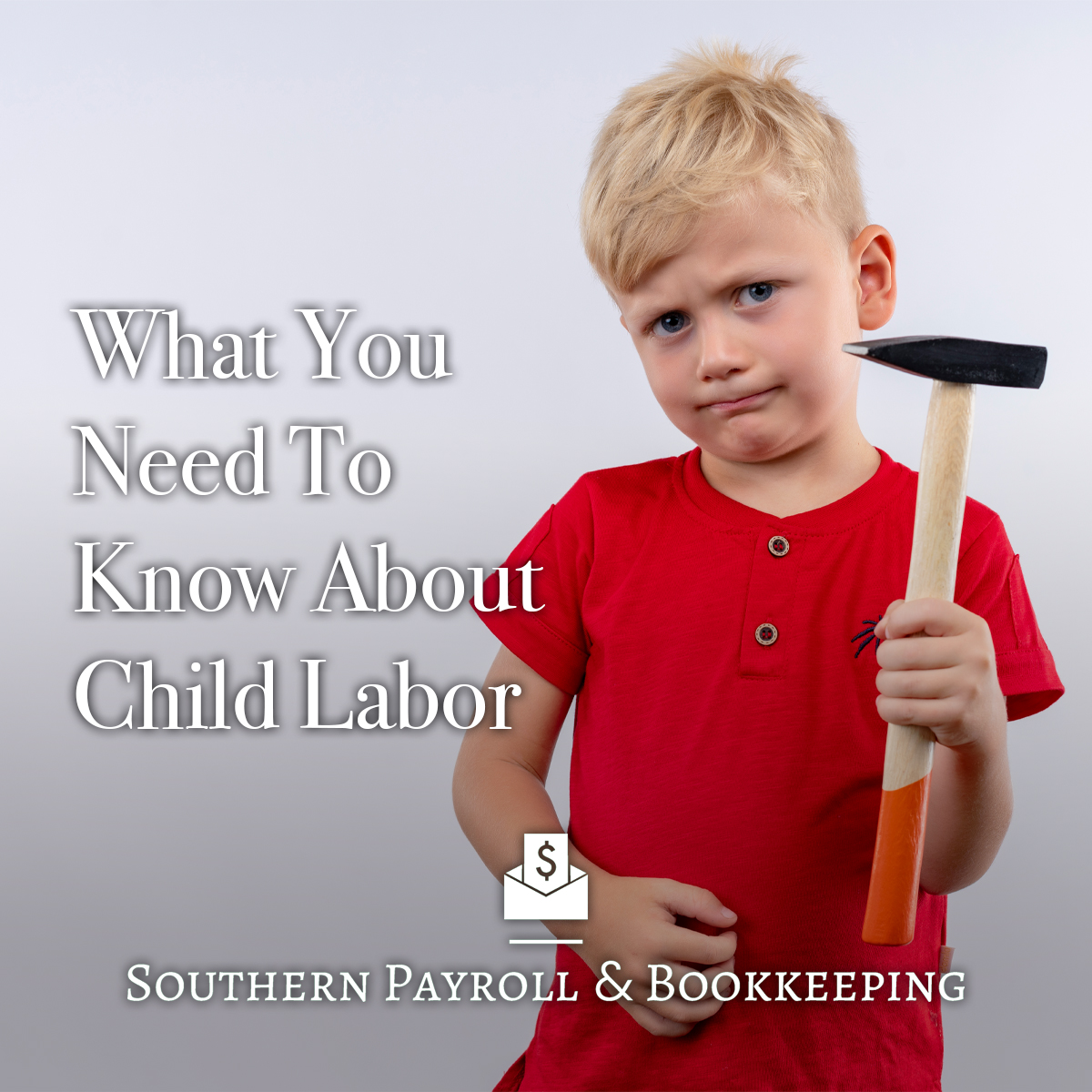How young is too young for someone to start learning the value of hard work and the rewards it brings? That almost entirely depends on what kinds of work activities you may those young people doing. The law allows for children under age 14 to be employed as actors, to work in agriculture, or to work in a family-owned business, but even then there are rules and regulations you need to abide by. Furthermore, you cannot employ them in very hazardous jobs or compel them to start a workday earlier than 6:00 a.m. , but that is exactly what one company in Clarkrange, TN, did…and they ended up having to pay a hefty price for these violations: over $70,000 in civil penalties, to be exact. In addition, they had to forfeit $10,000 in profits they made during the time the kids were working. In light of this, we thought we would pass along some helpful tips on what is and what is not allowed when you employ people less than 18 years old.
FLSA
When considering child labor laws, the starting place has to be the Fair Labor Standards Act, or FLSA. The FLSA was originally enacted in 1938 and it currently includes provisions to protect minors in the workplace, with the focus on safeguarding them from injury or illness, while also ensuring educational opportunities are not compromised.
In 2023 the federal government concluded over 950 investigations that uncovered child labor law violations. This was was a 14% increase from the previous year. A total of 5,800 kids were employed in violation of federal law and the penalties assessed increased by 83% from the previous year to a total of $8 million.
The FLSA has established a federal framework and minimum standards, but all states have the authority to implement and enforce standards than those determined by federal law.
Age
Federal and Tennessee state laws require individuals to be at least 14 years of age to be eligible for employment. There are exceptions for jobs such as newspaper delivery, acting, babysitting, and working in a family business. There is also an exception for agricultural jobs, but it depends on the tasks and responsibilities required for the job and requires parental consent.
Neither federal nor state laws require that minors obtain a work permit to be able to work from ages 14 to 17, but Tennessee does oblige employers to maintain proof of the minor’s age.
Hours
For teens aged 14 and 15, federal and state provisions are nearly identical when it comes to the number of hours a child can work and when those hours can be worked. Shifts must be scheduled outside school hours, and minors are allowed up to 3 hours on school days or 8 hours on non-school days, with a total maximum of 18 hours during a school week (they are allowed to put in a full 40 hours on non-school weeks). Furthermore, the times of day those hours can be worked is limited to 7 a.m to 7 p.m., except during summer break (defined as June 1 to Labor Day in the FLSA) when they are allowed to extend the evening hours until 9 p.m.
Federal law does not impose restrictions on the number of hours or times of day that teens aged 16 and 17 may work, but they are prohibited from working in hazardous occupations, like the sawmill we began this story with. Other examples would mining, operating heavy machinery, or working with explosives. Tennessee state law imposes stricter standards, limiting the number of hours to four on school days, a maximum of 48 hours per week, and preventing them from working after 10 p.m. on nights before school unless they have written parental consent. Even with that consent, they cannot work past midnight.
Enforcement
The Department of Labor enforces the child labor laws at the federal level. If found in violation, employers can face civil penalties of up to $13,650 per violation. If an employer is discovered to have “willful” or “repeated” violations, those penalties are likely to drastically increase and there is the possibility of criminal charges being filed.
Tennessee’s Department of Labor and Workforce Development provides additional oversight and has the authority to impose similar penalties for violations.
Wrapping Up
Tennessee’s laws and enforcement practices are consistent with federal standards, while providing additional protections for employees aged 16 and 17. Both sets of standards are in place to give young people the opportunity to earn money and gain work experience, while also protecting them from exploitation and helping them balance work and education needs.
At Southern Payroll & Bookkeeping, we offer a Partner Model for our clients where we effectively become your Payroll and Human Resources Team. We manage all aspects of payroll and proactively advise you of potential violations of child labor laws.
Ready to learn about our services? Call 423-207-2497 or email info@southernpb.com today to set up your appointment with one of our expert advisors!

